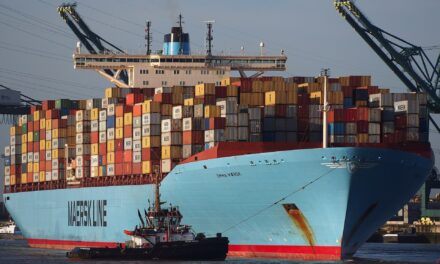The US and EU have deceived the developing world in this Ministerial.
Whilst loud on rhetoric about "Development", this has descended into a Doha Deception Round.
Cuts to Export Subsidies Amounts to No Change On export subsidies, the EC is extracting a high price, in return for doing nothing. A large proportion of EU supports go into subsidizing exports. However, only a small part is classified as export subsidies.
Most fall into the WTO-legal "Green Box" which has escaped disciplines in the current negotiations.
55 billion Euros provided by the EU annually are trade distorting.
This will remain even if export subsidies are phased out. Today, export subsidies only make up 3 billion Euros. There are still 47 billion trade distorting supports which are falsely classified as WTO legal in the Green Box. By 2013, export subsidies would have been reduced to 1 billion Euros as a result of the 2003 reform of the Common Agriculture Policy (CAP), whilst 49 billion would still be provided under the WTO Green Box.
There is no reduction in the overall cuts in domestic supports. Nor is there reduction of cuts in trade distorting supports. Export subsidies are being phased out, but hidden export subsidies housed in the Green Box, and will replace export subsidies.
Locking in US, EU Subsidies
There are no cuts in domestic supports. In fact, the text, stating that there is "some convergence" on cuts in domestic supports completely lets the US and EU off the hook. It implies acceptance of US and EU offers (in October), which did not cut into their real supports, but legitimized the supports they give to their farmers.
There will not be an end to dumping in rice, beef, diary, maize, soya or cotton.
Says Aileen Kwa of Focus on the Global South, "This has been a deceitful exercise. US and EU have lied their way through these negotiations, whilst crafting the rules that reinforce their system of subsidization that is depressing world prices and displacing small farmers in the South".
EU has offered to cut trade distorting domestic supports by 70% and the US by 60%. However, these supports only cut into money they do not currently provide. It does not cut into their present applied levels.
EU subsidies of 90 billion Euros will be retained, and US subsidies of
US$74 billion will still be in place. This agreement will have grave implications for the cotton farmers.
Giving Nothing, Grabbing Developing Country Markets in Services This is a completely hollow agriculture package. Yet the developing world have been asked to swallow the bitter pill of opening up aggressively in services. The US and EU want aggressive sectoral negotiations to take place after Hong Kong in finance, telecommunications, distribution, education, postal services, computer and business services etc. They want the developing countries to accept a set of rules in each of these sectors that will allow foreign investors the same rights as local suppliers, and the complete opening of domestic services markets.
Sectoral negotiations will be the big win – in distribution, Walmart and Carrfour will have markets opened to them. In computer and business services, IBM, in postal /express delivery, DHL and IPS, in finance, the winners are the major banks of the US and EU, in energy, Haliburton.
A sectoral negotiation in distribution, for instance, means that countries will be coerced or strongly pressured into allowing the entry of hypermarkets and removing any existing regulation that limits such entry. The losers are the poor in developing countries that sell their produce on the road sides, local markets or small retail shops.
Their livelihoods will be at stake.
Implications for Developing Countries
According to Kwa, "For the African and Caribbean countries, even for most in Latin America, increased unemployment and poverty will result from this Ministerial, in agriculture, industry and in the services sectors."
Contact: Focus on the Global South Brett Solomon – 852 649 72675 – [email protected] Aileen Kwa – 852 61293671 – [email protected] www.focusweb.org







